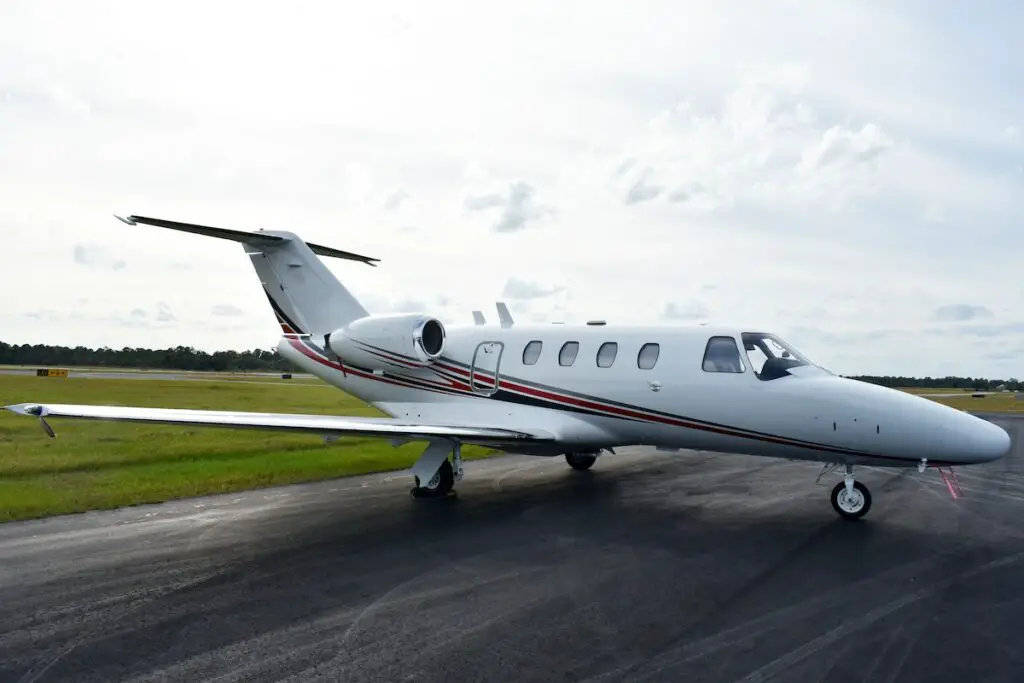How to start a private aviation business? The private aviation industry presents a lucrative opportunity for aspiring entrepreneurs.
With its high demand and potential for profitability, starting a private aviation business can be a rewarding venture.
Contents
This blog post will provide an overview of the private aviation industry, highlight the benefits of entering this field.
And discuss key considerations before embarking on this endeavor. Private aviation offers numerous advantages, such as flexibility in travel schedules.
Personalized services, and access to remote locations not easily reached by commercial airlines.
By starting a private aviation business, you can tap into this market and cater to discerning clients seeking luxury travel experiences or efficient transportation solutions.
However, before diving into the world of private aviation.
It is essential to develop a comprehensive air charter business plan and familiarize yourself with the regulations set by the Federal Aviation Administration (FAA).
These considerations will help ensure compliance with safety standards and operational requirements.

Understanding the Private Jet Charter Industry
Private jet charters have become increasingly popular in recent years due to the convenience and luxury they offer.
People are willing to pay a premium price for the flexibility, comfort, and personalized experience that private jet travel provides.
The demand for private jet charters is driven by various factors such as time efficiency, privacy, and exclusivity.
- Pros:
- Private jet charters allow passengers to avoid long security lines and crowded airports.
- They offer flexible departure times and routes tailored to individual needs.
- Passengers can enjoy a comfortable cabin environment with luxurious amenities.
- Cons:
- Private jet charters can be expensive compared to commercial flights.
- Availability may be limited during peak travel seasons or in remote locations.
- Weather conditions or maintenance issues can lead to flight delays or cancellations.
Differentiating between Fractional Ownership and Charter Services
In the private jet charter industry, it’s important to understand the distinction between fractional ownership and charter services.
Fractional ownership involves purchasing a share of an aircraft through a company like NetJets or Flexjet.
This allows individuals or businesses access to an aircraft for a certain number of hours per year.
On the other hand, charter services involve renting an entire aircraft for a specific trip or duration.
- Key Information:
- Fractional ownership offers more consistent access to an aircraft but requires a significant upfront investment.
- Charter services provide on-demand access without any long-term commitments.
Identifying Target Customers in the Private Jet Charter Market
To succeed in the private jet charter business, it’s crucial to identify your target customers accurately.
Understanding their preferences, needs, and demographics will help you tailor your services accordingly.
The target market for private jet charters typically includes:
- High-net-worth individuals: These individuals value privacy, exclusivity, and personalized service.
- Business executives: Executives often require efficient travel options to attend meetings, conferences, and other business-related events.
- Celebrities and entertainers: Private jet charters offer privacy and security for high-profile individuals in the entertainment industry.
- Medical transportation: Private jets are used for medical evacuations, organ transportation, and specialized medical treatments.
Identifying your target customers will allow you to develop effective marketing strategies and provide exceptional service that caters to their specific needs.

Analyzing Competitors and Identifying Market Opportunities
To start a successful private aviation business, it’s crucial to conduct thorough competitor analysis in the industry.
This involves researching and understanding other players in the private aviation sector to gain insights into their strategies, offerings, and target market.
By analyzing competitors, you can identify gaps and untapped markets within the industry that present opportunities for your business.
One way to conduct competitor analysis is by studying their marketing tactics, pricing models, and customer experience.
Look at how they position themselves in the market and what unique selling points they emphasize.
This will help you understand their target customers and how they cater to their needs.
Identifying gaps in the market requires careful observation of industry trends and market demand.
Look for areas where there is a lack of service or limited competition.
For example, if there are no private aviation providers catering specifically to luxury travelers or remote destinations, this could be an opportunity for your business to fill that gap.
Evaluating potential partnerships or collaborations with existing players can also open doors for your private aviation business.
Consider reaching out to established companies or brokers who already have a strong presence in the industry.
Collaborating with them can provide access to their network of clients while leveraging their expertise and resources.
Attending industry events such as trade shows or conferences can provide valuable networking opportunities and insights into emerging trends.
Engage with industry professionals, listen to keynote speakers, and gather information about potential competitors or partners.
When conducting market research, it’s important to focus on understanding your target customers’ unique needs.
Private aviation clients often have specific requirementsConvenience, privacy, and flexibility. Tailoring your services accordingly will give you a competitive edge.
Feasibility studies play a crucial role in evaluating the viability of your business idea within the private aviation sector.
These studies involve assessing factors such as market size, competition level, regulatory requirements, operational costs, revenue projections, and potential risks.
By conducting thorough feasibility studies, you can make informed decisions about the viability of your business and identify any potential challenges or roadblocks.

Raising Startup Capital for Your Charter Business
To start your private aviation business, you’ll need to secure the necessary funds.
Let’s explore some options for raising startup capital and how to attract investors or lenders with a solid business plan.
Exploring Funding Options
There are several avenues you can explore:
- Self-Funding: If you have personal savings or assets that can be liquidated, this may be an option worth considering. It allows you to maintain full control over your business without having to rely on external sources of funding.
- Bank Loans: Approach banks or financial institutions that specialize in providing loans for small businesses. Prepare a comprehensive business plan and financial projections to demonstrate the profitability of your venture.
- Investors: Seek out angel investors or venture capitalists who are interested in investing in charter businesses. These individuals or firms provide capital in exchange for equity or ownership stakes in your company.
- Crowdfunding: Consider utilizing crowdfunding platforms where individuals can contribute smaller amounts of money towards your startup costs. This approach allows you to tap into a wider network of potential investors.
Creating a Comprehensive Business Plan
Before approaching potential investors or lenders, it’s crucial to develop a well-crafted business plan that outlines your vision and strategies for success.
Here are some key elements to include:
- Executive Summary: Provide an overview of your charter business, highlighting its unique selling points and market potential.
- Market Analysis: Conduct thorough research on the private aviation industry, identifying target customers, competitors, and market trends.
- Business Structure: Decide on the legal structure of your company (e.g., limited liability company, general partnership) and explain why it is suitable for your operations.
- Financial Projections: Present detailed financial forecasts that outline revenue projections, operating expenses, and anticipated profitability over a specific period.
- Marketing and Sales Strategy: Describe how you plan to attract customers and differentiate your charter business from competitors.
Demonstrating Profitability
Investors and lenders want to see a clear path to profitability before committing their funds.
To demonstrate the financial viability of your charter business, consider the following:
- Solid Financial Projections: Prepare realistic financial projections that take into account factors such as operating costs, fuel expenses, maintenance, and marketing expenses.
- Competitive Pricing: Conduct market research to determine competitive pricing strategies that balance profitability with customer demand.
- Customer Acquisition Strategies: Outline effective marketing and sales strategies to attract clients and generate revenue.
- Differentiation: Highlight what sets your charter business apart from competitors, whether it’s exceptional service, unique amenities, or specialized routes.
By presenting a comprehensive business plan with well-researched financial projections and demonstrating profitability potential.
You’ll increase your chances of securing the necessary startup capital for your private aviation venture.

Establishing Legal Requirements and Obtaining Licenses
To start a private aviation business, you need to navigate the regulatory frameworks specific to operating a charter business.
This means understanding and complying with the rules and regulations set by relevant authorities.
Here are some key steps to follow when establishing legal requirements and obtaining licenses for your private aviation business:
Navigating Regulatory Frameworks
Operating a charter business involves dealing with various regulatory requirements.
It’s important to familiarize yourself with these rules and regulations to ensure compliance.
Some of the common areas you need to consider include:
- Licensing: Acquiring the necessary licenses, permits, and certifications is crucial for running a legitimate charter business. These documents demonstrate your ability to provide safe and reliable services.
- Safety Standards: Complying with safety regulations is paramount in the aviation industry. You must adhere to safety standards set by relevant authorities such as the Federal Aviation Administration (FAA) in the United States or the Civil Aviation Authority (CAA) in other countries.
Acquiring Necessary Licenses, Permits, and Certifications
To operate a private aviation business legally, you will need specific licenses, permits, and certifications. Here are some essential ones to consider:
- Air Operator’s Certificate (AOC): An AOC is required for commercial air transport operations. It demonstrates that your company meets safety standards and is authorized to conduct commercial flights.
- Part 135 Certification: In the United States, obtaining Part 135 certification from the FAA allows you to operate on-demand charter flights legally.
- Professional Development: Building relationships with service providers who can assist you in obtaining necessary certifications is crucial. Consider partnering with flight schools or training centers that offer courses tailored towards meeting regulatory requirements.
Complying with Safety Regulations
Safety should always be a top priority when starting an aviation business. Ensure that your operations meet or exceed safety standards set by relevant authorities.
This includes:
- Maintenance and Inspections: Regularly inspecting and maintaining your aircraft is essential to ensure they are in optimal condition. Adhering to maintenance schedules and conducting thorough inspections will help you meet safety standards.
- Crew Training: Hiring qualified pilots and crew members who have the necessary skills and certifications is vital. Ensure that your team receives ongoing training to stay updated on safety protocols and procedures.
Building Relationships with Authorities
Establishing positive relationships with regulatory authorities can be beneficial for your private aviation business.
This can help streamline the licensing process, provide access to important information, and foster a cooperative working environment.
- Building Trust: Demonstrate your commitment to safety by following all rules and regulations diligently. Be proactive in addressing any concerns raised by authorities promptly.
- Open Communication: Maintain open lines of communication with relevant authorities. Stay informed about any changes or updates in regulations that may affect your operations.
By understanding the regulatory requirements, acquiring the necessary licenses, permits, and certifications, complying with safety standards.
And building relationships with relevant authorities, you can establish a solid legal foundation for your private aviation business.

Acquiring a Fleet of Private Jets to Meet Demand
To successfully start a private aviation business, one crucial aspect is acquiring a fleet of private jets that can meet the demand for luxury travel.
This involves careful consideration of several factors, including determining the optimal fleet size, evaluating purchasing versus leasing options.
And ensuring the maintenance and operational readiness of your aircraft.
Determining Optimal Fleet Size
Before acquiring private jets, it’s essential to conduct thorough market research and demand analysis.
This will help you determine the ideal number of aircraft needed to cater to your target market’s needs effectively. Factors to consider include:
- Market demand: Analyze the current and projected demand for private flights in your target region or industry. Consider factors such as population demographics, economic growth, tourism trends, and corporate travel requirements.
- Competition: Assess the level of competition in your chosen market. Evaluate the existing players’ fleet sizes and service offerings to identify any gaps or opportunities.
- Operational capacity: Evaluate your own resources and capabilities to determine how many aircraft you can efficiently manage while maintaining high-quality service standards.
By carefully analyzing these factors, you can make informed decisions about the optimal fleet size that aligns with market demand and ensures profitability.
Evaluating Purchasing Versus Leasing Options
Once you have determined the desired fleet size, it’s time to consider whether purchasing or leasing aircraft is more suitable for your business.
Each option has its advantages and considerations:
Purchasing:
- Pros:
- Full ownership and control over the aircraft.
- Potential long-term cost savings compared to leasing.
- Flexibility in customizing and branding the aircraft according to your company’s image.
- Cons:
- High upfront costs associated with purchasing new or pre-owned private jets.
- Responsibility for maintenance, repairs, insurance coverage, and storage.
Leasing:
- Pros:
- Lower upfront costs compared to purchasing.
- Access to a wider range of aircraft options and newer models.
- Maintenance, repairs, and insurance coverage often included in the lease agreement.
- Cons:
- Limited control over customization and branding.
- Long-term costs may be higher than purchasing if leasing for an extended period.
Consider your financial situation, long-term goals, and operational requirements when deciding between purchasing or leasing private jets for your fleet.
Ensuring Maintenance, Insurance, and Operational Readiness
Maintaining the airworthiness and operational readiness of your aircraft fleet is crucial for providing safe and reliable luxury travel experiences.
Here are some essential steps to ensure your fleet’s maintenance, insurance coverage, and operational readiness:
- Maintenance: Establish partnerships with reputable aircraft maintenance providers who can perform regular inspections, repairs, and preventive maintenance on your private jets.
- Insurance: Obtain comprehensive insurance coverage that includes liability protection, hull damage coverage, passenger injury coverage, and other relevant policies to protect your business from potential risks.
- Operational Readiness: Develop robust processes for flight planning, crew scheduling, ground transportation arrangements (such as concierge services), and customer service protocols to ensure smooth operations.
By prioritizing ongoing maintenance efforts, obtaining suitable insurance coverage.
And implementing efficient operational procedures, you can maintain the safety and reliability of your private aviation business.

Developing an Effective Marketing Strategy and Pricing Plan
Crafting a compelling brand identity for your charter business is one of the crucial steps in starting a private aviation business.
Your brand identity represents who you are, what you offer, and what sets you apart from competitors. It’s like your business’s personality!
To create a strong brand identity, consider the following:
Crafting a Compelling Brand Identity for Your Charter Business
- Define your target audience: Identify the specific group of people you want to attract as clients. Determine their demographics, preferences, and needs.
- Develop a unique value proposition: Highlight what makes your private aviation services special and why potential clients should choose you over competitors.
- Create a memorable name and logo: Choose a name that reflects your brand’s values and resonates with your target audience. Design a visually appealing logo that captures the essence of your business.
- Establish consistent branding across all platforms: Use consistent colors, fonts, and imagery in all marketing materials to reinforce brand recognition.
- Tell your story: Share the story behind your charter business to connect with potential clients on an emotional level. Explain how you started, what motivates you, and how you aim to provide exceptional service.
Implementing targeted marketing campaigns is essential to reach potential clients effectively.
You need to get the word out about your private aviation services and generate leads. Consider the following strategies:
Implementing Targeted Marketing Campaigns to Reach Potential Clients
- Utilize digital marketing channels: Leverage social media platforms like Instagram and LinkedIn to showcase luxurious travel experiences or share testimonials from satisfied clients.
- Collaborate with influencers: Partner with popular influencers in the luxury travel industry who can promote your charter business to their followers.
- Attend industry events: Participate in trade shows or conferences related to private aviation where you can network with potential clients or establish partnerships with other businesses.
- Offer referral incentives: Encourage satisfied clients to refer your services to others by providing incentives such as discounts or rewards.
Strategically pricing your services based on market dynamics is crucial for the success of your private aviation business.
You need to find a balance between profitability and competitiveness. Consider the following factors:
Strategically Pricing Your Services Based on Market Dynamics
- Research competitors’ pricing: Analyze what other private aviation businesses are charging for similar services and adjust your prices accordingly.
- Consider operating costs: Calculate all the expenses involved in running your charter business, including fuel, maintenance, insurance, and staff salaries.
- Evaluate demand and supply: Assess the demand for private aviation services in your target market and adjust prices based on availability and competition.
- Offer customized packages: Provide flexible pricing options that cater to different client needs, such as hourly rates or membership plans.
Remember, developing an effective marketing strategy and pricing plan requires careful consideration of your brand identity, targeted marketing campaigns, and market dynamics.
By crafting a compelling brand identity, implementing targeted marketing campaigns.
And strategically pricing your services, you can position your private aviation business for success!

Tips for Success in the Private Jet Charter Industry
To have a successful career in the private aviation business, there are several key factors to consider.
Building strong relationships with clients through exceptional service, prioritizing safety measures to instill trust among customers.
And staying updated with industry trends and technological advancements are all crucial aspects.
Let’s delve into each of these points to understand how they contribute to your success.
Building strong relationships with clients through exceptional service
In the private jet charter industry, providing an outstanding private jet experience is essential for building long-lasting relationships with clients.
By going above and beyond their expectations, you not only create a memorable travel experience but also increase the likelihood of repeat business and referrals.
Here are some tips to achieve this:
- Offer personalized services tailored to each client’s preferences and needs.
- Provide prompt responses and excellent communication throughout the booking process.
- Ensure that your staff is well-trained, professional, and attentive to every detail.
- Surprise your clients with thoughtful gestures such as welcome gifts or special amenities on board.
Prioritizing safety measures to instill trust among customers
Safety should always be a top priority in the private aviation business. Customers entrust their lives to you when they step onto your aircraft.
So it is crucial to instill confidence by implementing stringent safety measures. Here’s what you can do:
- Regularly maintain and inspect your aircraft fleet according to industry standards.
- Hire experienced pilots who undergo thorough training and adhere strictly to safety protocols.
- Stay up-to-date with regulatory requirements and ensure compliance at all times.
- Communicate transparently with customers about safety procedures and precautions.
Staying updated with industry trends and technological advancements
To stay ahead in the competitive private jet charter industry, it is vital to remain informed about industry trends and embrace technological advancements.
This allows you to provide cutting-edge services that meet the evolving needs of your clients. Consider these strategies:
- Network with industry professionals, attend conferences, and join relevant associations to stay updated on the latest trends.
- Collaborate with travel agents and other partners to expand your professional network and reach a wider audience.
- Embrace technology solutions that enhance the customer experience, such as online booking platforms or mobile apps for seamless communication.
- Continuously evaluate your services and seek feedback from clients to identify areas for improvement.
By implementing these tips, you can position yourself for success in the private jet charter industry.
Building strong client relationships through exceptional service, prioritizing safety measures, and staying up-to-date with industry trends will set you apart from the competition.
Remember, success in this business is not just about providing luxurious travel experiences but also about delivering exceptional customer service every step of the way.

Conclusion
In conclusion, starting a private aviation business requires careful planning and execution.
Understanding the private jet charter industry is crucial, as it helps you identify market opportunities and analyze competitors.
Raising startup capital is essential to acquire a fleet of private jets that can meet the demand.
Establishing legal requirements and obtaining licenses ensures compliance with regulations.
Developing an effective marketing strategy and pricing plan will help attract customers in this competitive industry.
To succeed in the private jet charter industry, it is important to be detail-oriented and provide exceptional service.
Pay attention to customer preferences, safety measures, and operational efficiency.
By focusing on these aspects, you can build a strong reputation and gain customer loyalty.
FAQs
1. How much does it cost to start a private aviation business?
The cost of starting a private aviation business can vary depending on various factors such as the size of your fleet, operational expenses, marketing efforts, and legal requirements. Generally, starting costs can range from several hundred thousand dollars to millions of dollars.
2. What licenses do I need to operate a private aviation business?
To operate a private aviation business legally, you will typically need an Air Operator Certificate (AOC) or equivalent certification issued by your country’s aviation authority. You may need permits for specific airports or regions where you intend to operate.
3. How do I attract customers to my private aviation business?
To attract customers to your private aviation business, develop a comprehensive marketing strategy that includes online advertising, search engine optimization (SEO), social media presence, partnerships with travel agencies or concierge services, and targeted outreach to potential clients in your target market.
4. What safety measures should I implement in my private aviation business?
Safety should be paramount in your private aviation business. Implement rigorous maintenance procedures for your aircraft fleet and ensure compliance with all relevant safety regulations. Conduct regular training sessions for pilots and crew members focused on emergency procedures and customer safety.
5. How can I differentiate my private aviation business from competitors?
To differentiate your private aviation business, focus on providing exceptional customer service, personalized experiences, and attention to detail. Offer unique amenities or perks that set you apart from competitors. Building strong relationships with clients and consistently exceeding their expectations will help you stand out in the industry.







Leave a Reply